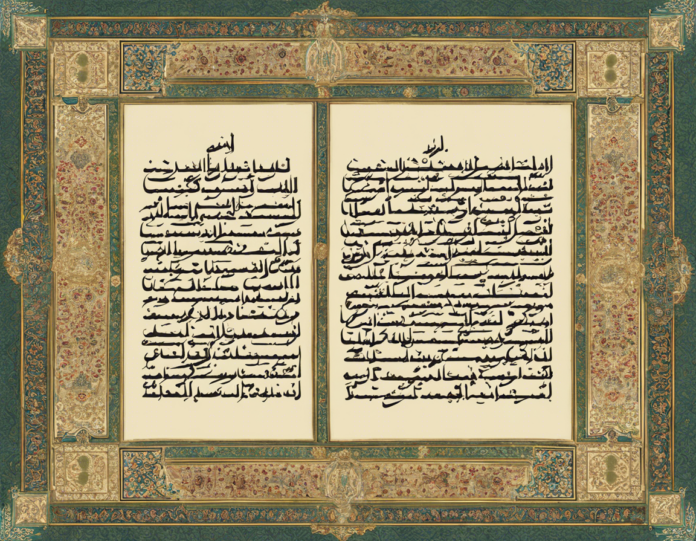Introduction
The Quran is the holy book of Islam, believed by Muslims to be a revelation from God. It is revered by over a billion followers around the world and is considered the ultimate source of guidance for personal and spiritual development. Within the Quran, there are 114 chapters, each known as a surah. One of the most important and frequently recited surahs is Surah Al-Fatihah, also known as the Opening or the Essence of the Quran.
The Significance of Surah Al-Fatihah
Surah Al-Fatihah is the first chapter of the Quran and holds immense significance in Islamic belief and practice. It is recited in every unit of the Muslim prayer (salah) and is considered essential for the prayer to be valid. The surah is also recited in various other acts of worship and supplication, emphasizing its importance in the life of a Muslim.
Understanding the Meaning
The surah opens with the phrase “Bismillah hir-Rahman nir-Rahim,” which translates to “In the name of Allah, the Most Gracious, the Most Merciful.” This illustrates the mercy and benevolence of God, setting the tone for the rest of the surah. The following verses praise Allah, acknowledge His sovereignty, seek guidance, and ask for help in staying on the right path. It is a powerful invocation that establishes a strong connection between the worshipper and the Creator.
Themes and Lessons
Surah Al-Fatihah covers several key themes and imparts crucial lessons for believers. Some of the main themes include:
1. Tawhid (Monotheism)
The surah emphasizes the oneness of God and the importance of worshipping Him alone. It serves as a reminder to avoid associating partners with Allah and to maintain a pure and sincere devotion to Him.
2. Guidance
Seeking guidance from Allah is a central theme of the surah. It acknowledges human vulnerability and the need for divine help to navigate the complexities of life and make righteous choices.
3. Gratitude and Praise
Surah Al-Fatihah teaches believers to express gratitude to Allah for His countless blessings and to praise Him for His infinite mercy and wisdom. It encourages a spirit of gratitude and humility in the worshipper.
4. Seeking Protection
The surah includes a supplication for protection from going astray and from the path of those who have deviated from the truth. It reminds believers of the constant struggle between right and wrong and the importance of seeking refuge in Allah.
5. Supplication
Surah Al-Fatihah ends with a prayer for guidance on the straight path, the path of those who have received Allah’s favor, and not the path of those who have gone astray. It serves as a comprehensive supplication for help and support from the Almighty.
Incorporating Surah Al-Fatihah in Daily Life
As a foundational chapter of the Quran, Surah Al-Fatihah offers profound spiritual insights and practical guidance for Muslims. Incorporating its teachings into daily life can have a transformative impact on one’s faith and character. Here are some ways to incorporate Surah Al-Fatihah into daily routines:
- Begin each day by reciting Surah Al-Fatihah for blessings and protection.
- Reflect on the meanings of the surah and contemplate its relevance to personal circumstances.
- Use the surah as a source of strength and solace during challenging times.
- Recite Surah Al-Fatihah before making important decisions or embarking on new endeavors.
- Share the wisdom of the surah with family and friends to enhance spiritual growth and unity.
Frequently Asked Questions (FAQs)
1. Why is Surah Al-Fatihah called the “Opening”?
Surah Al-Fatihah is known as the “Opening” because it serves as an introduction to the Quran, summarizing its key themes and establishing a connection between the reader and the message of the book.
2. Can non-Arabic speakers benefit from reciting Surah Al-Fatihah?
Yes, non-Arabic speakers can benefit from reciting Surah Al-Fatihah by learning its meanings and reflecting on its teachings. Translations are available in various languages to help understand the message of the surah.
3. What is the spiritual significance of reciting Surah Al-Fatihah in prayer?
Reciting Surah Al-Fatihah in prayer is spiritually significant as it demonstrates the worshipper’s acknowledgment of God’s greatness, gratitude for His blessings, and reliance on His guidance. It sets the tone for a meaningful and focused prayer.
4. How can Surah Al-Fatihah enhance one’s connection with Allah?
Surah Al-Fatihah can enhance one’s connection with Allah by serving as a direct communication channel with the Creator. Through recitation and reflection on the surah, believers can deepen their understanding of God’s attributes and seek His guidance and protection.
5. Are there any specific times or occasions when reciting Surah Al-Fatihah is recommended?
Reciting Surah Al-Fatihah is recommended at various times, including during the five daily prayers, before starting a new task, when seeking guidance or protection, and in times of distress or need. Its versatility allows for its recitation in a wide range of situations.
In conclusion, Surah Al-Fatihah is a compact yet profound chapter of the Quran that encapsulates essential teachings and principles of Islam. By understanding its significance, themes, and lessons, and by incorporating its recitation into daily life, believers can deepen their spirituality and strengthen their connection with Allah.

